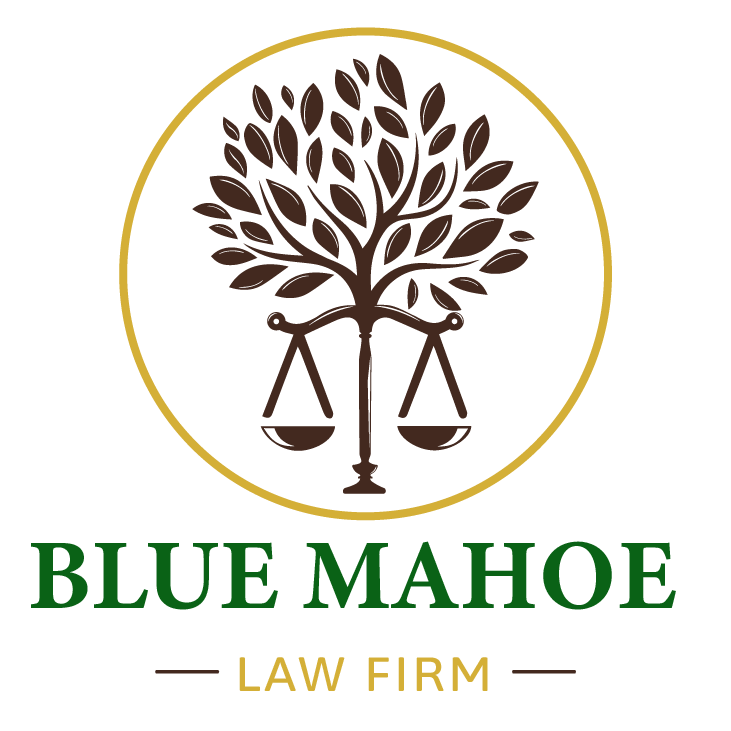Top 10 Mistakes To Avoid in Florida Estate Planning
Creating an estate plan is one of the most proactive and responsible steps you can take for yourself and your loved ones. It provides a roadmap to ensure your wishes are honored, your family is protected, and your legacy is secure. However, estate planning is far more than simply signing a few documents and filing them away. It’s a detailed process filled with nuances, particularly here in the State of Florida.
Even well-intentioned plans can be derailed by common and costly mistakes. These errors can lead to unintended consequences, invalidate your wishes, and create significant emotional and financial burdens for your family at the most difficult of times. Understanding these potential pitfalls is the first step toward avoiding them.
This guide will walk you through the top 10 mistakes we see people make in Florida estate planning. By learning from the missteps of others, you can ensure your plan functions exactly as you intend, providing true peace of mind for you and a clear, manageable path for your loved ones.
Mistake #1: The Procrastination Trap: Having No Plan at All
The single biggest mistake in estate planning is failing to do it. Many people believe they are too young, don't own enough assets, or simply have plenty of time to get it done later. This procrastination is a gamble against life's unpredictability, and in Florida, the consequences of having no plan are significant.
- The Consequences: If you pass away without a will or trust (a condition known as dying "intestate"), you don't get to decide who inherits your property. Instead, the State of Florida makes that decision for you based on rigid intestacy laws. These laws dictate a strict hierarchy of relatives who will inherit, which often doesn't align with personal wishes. An unmarried partner, a close friend, or a favorite charity will receive nothing. Furthermore, the court will appoint a Personal Representative to manage your estate and a guardian to raise your minor children, taking these deeply personal choices out of your hands.
- The Solution: Act now. Everyone over the age of 18 needs a foundational estate plan. It doesn’t have to be overly complex to start. A basic plan including a will, durable power of attorney, and healthcare directives provides a massive layer of protection compared to having nothing at all.
Mistake #2: The DIY Danger: Relying on Generic Online Forms
In an effort to save time and money, many turn to cheap online document-creation services. While these platforms may seem convenient, they are fraught with peril. Law is not a one-size-fits-all commodity, and Florida has unique legal requirements that generic forms often miss.
- The Consequences: A DIY will or trust might be improperly executed (e.g., not having the correct number of witnesses), making it invalid in a Florida court. Vague or ambiguous language can lead to confusion and expensive litigation among your heirs. The document may also fail to account for Florida-specific issues, like our complex Homestead laws, leading to disastrous results. You may not save money at all; your family could spend thousands more in legal fees to clean up the mess left by a faulty document.
- The Solution: An estate plan is one of the most important legal preparations you will ever make. It is wise to seek guidance from a qualified legal professional who has a thorough understanding of Florida law and can craft a plan tailored to your specific family situation and goals.
Mistake #3: Neglecting Beneficiary Designations
Many of your most valuable assets are not controlled by your will or trust. These include life insurance policies, retirement accounts (like 401(k)s and IRAs), and certain bank or investment accounts (Payable-on-Death or Transfer-on-Death). These assets pass directly to the person named on the beneficiary designation form.
- The Consequences: Failing to update these forms can lead to what is often called an "accidental inheritance." People commonly name a spouse and then forget to change it after a divorce, meaning an ex-spouse could inherit a substantial sum against their wishes. Or they may have another child and forget to add them to the form. A beneficiary designation will almost always override what is written in your will.
- The Solution: Treat your beneficiary designations with the same importance as your will. Conduct a regular audit of all your accounts and policies. Review and update these forms after any major life event—marriage, divorce, birth, or death—to ensure they align with your current wishes.
Mistake #4: Creating a Trust but Failing to Fund It
A revocable living trust is a powerful tool to avoid the time, expense, and public nature of probate court. However, simply signing the trust document is not enough. The trust is like an empty box; it only controls the assets that are placed inside it.
- The Consequences: This is a tragically common error. If you create a trust but fail to retitle your assets (your home, non-qualified investment accounts, etc.) into the name of the trust, those assets will still have to go through probate. Your family will be forced to endure the very process you intended to avoid, completely defeating the primary purpose of creating the trust.
- The Solution: "Funding" the trust is a critical step. This involves working diligently to change titles, deeds, and account ownership from your individual name to you as the trustee of your trust (e.g., from "Jane Smith" to "Jane Smith, Trustee of the Jane Smith Revocable Trust").
Mistake #5: Misunderstanding Florida’s Complex Homestead Law
Florida’s constitutional homestead protection is a powerful shield for homeowners, protecting the primary residence from many creditors. However, it also comes with strict rules about how the property can be sold or passed down at death.
- The Consequences: If you have a spouse or minor children, there are significant restrictions on your ability to leave your homestead to someone else in your will. Attempting to devise the property incorrectly can result in the devise being invalidated by the court. This could lead to your surviving spouse receiving a "life estate" (the right to live in the home for life) with the property passing to your children upon their death, which may not have been your intention at all.
- The Solution: Do not treat your homestead like any other asset in your estate plan. It requires special attention. Understand the specific devise restrictions and plan accordingly, especially if you are in a blended family or wish to leave the property to someone other than your spouse or minor child.
Mistake #6: Failing to Plan for Your Own Incapacity
Estate planning is not just about what happens after you die. It is equally important to plan for a period of incapacity—a time when you are still alive but unable to make sound decisions for yourself due to an accident or illness.
- The Consequences: Without an incapacity plan, your family’s only option is to go to court and establish a guardianship. This is a public, time-consuming, and often expensive legal process where a judge decides if you are incompetent and appoints a person to manage your financial and healthcare affairs. This process can be humiliating and removes all your personal autonomy.
- The Solution: Be proactive by including incapacity planning documents in your estate plan. A Durable Power of Attorney appoints someone to manage your finances, and a Designation of Health Care Surrogate appoints someone to make medical decisions on your behalf, keeping you out of court and in control.
Mistake #7: Choosing the Wrong Fiduciaries
Your estate plan relies on people you appoint to carry out your wishes. These people are called fiduciaries and include your Personal Representative (Executor), your Trustee, and your Agent under a Power of Attorney. Choosing the wrong person for these roles can be disastrous.
- The Consequences: Appointing someone who is not trustworthy, is financially irresponsible, or is easily overwhelmed can lead to mismanagement of assets, delays in administration, and intense family conflict. Appointing co-fiduciaries who do not get along can grind the entire process to a halt.
- The Solution: Choose your fiduciaries based on their integrity, reliability, financial sense, and willingness to serve. Do not choose someone simply because they are the oldest child or because you don't want to hurt their feelings. Always name at least one successor in case your primary choice is unable or unwilling to act.
Mistake #8: Not Updating Your Plan Regularly
An estate plan is not a "set it and forget it" document. It should evolve as your life changes. An outdated plan can be just as problematic as having no plan at all.
- The Consequences: An old plan may not reflect your current wishes. It might include an ex-spouse, leave out children or grandchildren born after it was created, or be based on tax laws that have since changed dramatically.
- The Solution: Review your estate plan every 3 to 5 years, or after any major life event. This includes marriage, divorce, the birth or adoption of a child, the death of a beneficiary or fiduciary, a significant change in your financial situation, or moving to a different state.
Mistake #9: Inadequate Planning for Minor Children
For parents of young children, an estate plan is not optional. It is a fundamental responsibility. Failing to plan properly can leave your children’s future uncertain.
- The Consequences: As mentioned, without a will, a court will decide who raises your children. Furthermore, any inheritance left to a minor will be managed by a court-appointed property guardian until the child turns 18, at which point the law requires the entire inheritance to be turned over to them in one lump sum—a scenario most parents would not choose for an 18-year-old.
- The Solution: Nominate a guardian for your children in your will. To manage their inheritance, use a trust. A trust allows you to appoint a trustee to manage the funds and specify how and when the money should be used for your children’s benefit, with distributions made at ages you deem appropriate, such as 25, 30, and 35.
Mistake #10: Forgetting Your Digital Assets
In our modern world, a significant portion of our lives exists online. Your digital assets—from social media accounts and email to cryptocurrency and cloud-stored photos—have both sentimental and financial value.
- The Consequences: Without a plan, your Personal Representative may have no idea these assets exist or no legal authority to access them. Family photos could be lost forever, valuable digital currency could vanish, and social media accounts could remain active indefinitely.
- The Solution: Create an inventory of your digital assets and passwords, stored in a secure location. Your estate plan can and should give your chosen fiduciary the specific legal authority to manage these assets in accordance with Florida's Fiduciary Access to Digital Assets Act.
Planning with Purpose
Avoiding these common mistakes is the key to transforming an estate plan from a simple stack of papers into a powerful tool that truly works for you and your family. Thoughtful planning is a process, not a one-time event. It requires careful consideration of your assets, your family dynamics, and the specific legal landscape of Florida.
By being proactive and seeking sound guidance, you can create a robust, effective plan that stands the test of time, bypasses common pitfalls, and provides lasting security and peace of mind.
Disclaimer: This blog post is for informational purposes only and does not constitute legal advice. Estate planning laws are complex and vary based on individual circumstances. You should consult with a qualified estate planning attorney regarding your specific situation. Contact Blue Mahoe Law for personalized legal counsel.
You might also like



